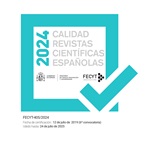El principio de reserva de Ley tributaria y el Derecho Fiscal derivado Comunitario. La necesidad de reforzar la participación del Parlamento español en la fase ascendente del Derecho Comunitario. (RI §413441)

The principle of no taxation without representation and secondary community tax legislation. The need gives to reinforce the participation of the spanish Parliament in the Community Law-makingprocess -
Ignacio Calatayud Prats
El presente artículo analiza, a propósito de la Sentencia 100/2012 del Tribunal Constitucional, la incidencia que la integración de España en la Unión Europea ha supuesto en el principio de reserva de ley e, igualmente, si la normativa comunitaria debe respetar la reserva de ley en sentido formal y material, así como los mecanismos que permiten reforzar y garantizar el fundamento de la reserva de ley.
I. INTRODUCCIÓN. II. EL ARBITRIO INSULAR DE ENTRADA TARIFA ESPECIAL. ANTECEDENTES DE LA SENTENCIA DEL TC 100/2012. III. LOS ARGUMENTOS DEL TRIBUNAL CONSTITUCIONAL EN LA SENTENCIA 100/2012. IV. EL REGLAMENTO COMUNITARIO Y LA RESERVA DE LEY. V. LA DIRECTIVA FISCAL COMUNITARIA Y EL PRINCIPIO DE RESERVA DE LEY. VI. RESERVA DE LEY TRIBUTARIA Y DERECHO COMUNITARIO.1. Reserva de ley formal y Derecho tributario derivado comunitario. 2. Reserva de ley material y Derecho comunitario. 3. La Sentencia del Tribunal Constitucional Alemán de 12 de Octubre de 1993.VII. LA ACTUACIÓN DE LOS PARLAMENTOS NACIONALES EN LA CREACIÓN DEL DERECHO FISCAL COMUNITARIO COMO PROPUESTA PARA GARANTIZAR EL FUNDAMENTO MATERIAL DE LA RESERVA DE LEY. 1. El modelo danés como ejemplo. 2. Propuestas de mejora del modelo español: el mandato negociador y la reserva de examen parlamentario.
This article analyzes, in the light of the Judgment 100/2012 of the Constitutional Court, the impact that the integration of Spain in to the European Union has resulted in the principle of legal reserve. The article also analyzes if the European regulations must respect the reserve of law as well as the mechanisms that allow to reinforce and guaranteeing the foundation of legal reserve (democratic principle).
I. INTRODUCTION. II. THE SPECIAL TARIFF OF ISLAND TAX ON THE ENTRY OF GOODS . BACKGROUND TO THE JUDGMENT 100/2012 OF THE CONSTITUTIONAL COURT. III.THE ARGUMENTS OF THE CONSTITUTIONAL COURT IN ITS JUDGMENT 100/2012. IV. COUNCIL REGULATION (EEC) AND PRINCIPLE OF NO TAXATION WITHOUT REPRESENTATION. V. DIRECTIVE EC AND PRINCIPLE OF NO TAXATION WITHOUT REPRESENTATION. VI. PRINCIPLE OF NO TAXATION WITHOUT REPRESENTATION AND AND SECONDARY COMMUNITY TAX LEGISLATION. 1. Formal reserve of law and secondary community tax legislation. 2. Substantive reserve of law and secondary community tax legislation. 3. The Judgment of the German Federal Constitutional Court of 12 October 2013.VII. THE INVOLVEMENT OF NATIONAL PARLIAMENTS IN THE CREATION OF THE COMMUNITY TAX LAW AS A PROPOSAL TO REINFORCE AND GUARANTEEING THE PRINCIPLE OF NO TAXATION WITHOUT REPRESENTATION. 1. The Danish model as an example. 2. Proposals for improvement of the Spanish model: Negotiating mandate and parliamentary scrutiny reservation.

 DIRECCIÓN / MANAGEMENT
DIRECCIÓN / MANAGEMENT